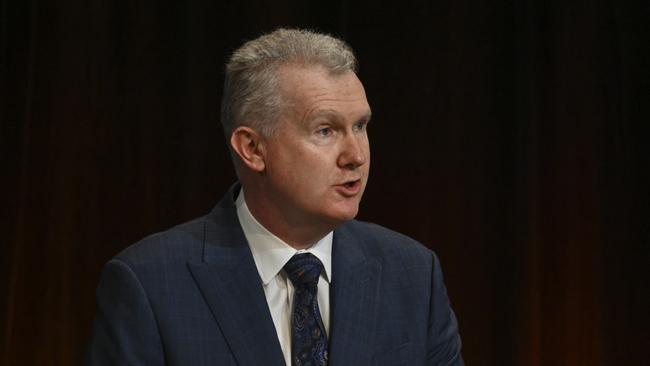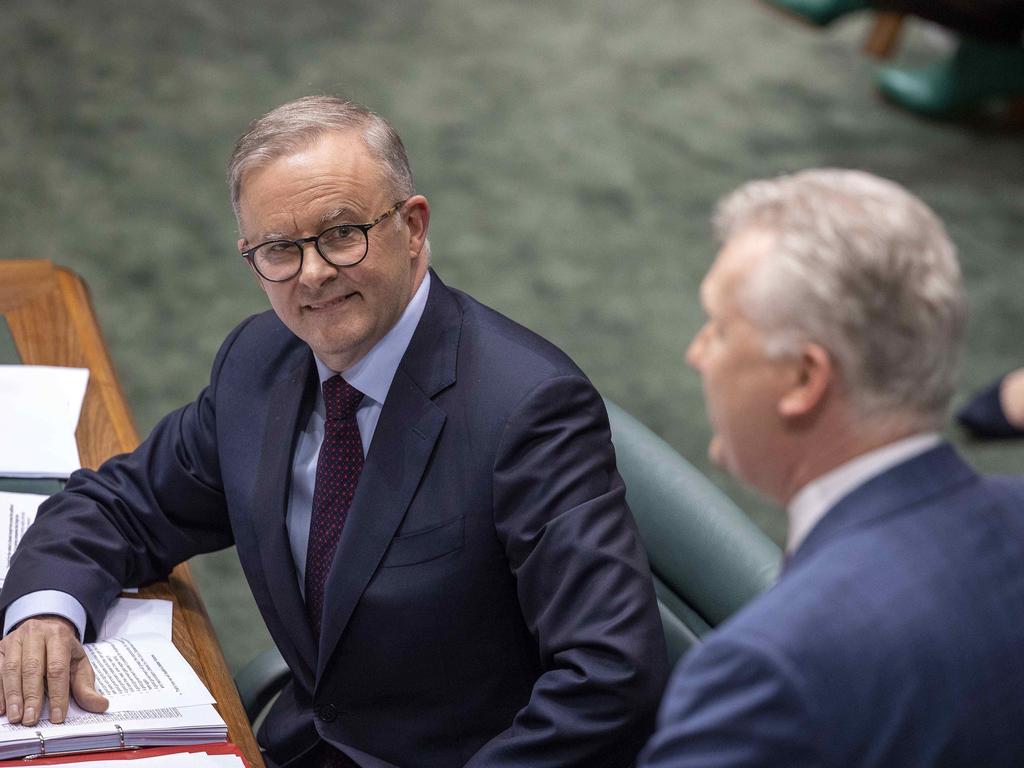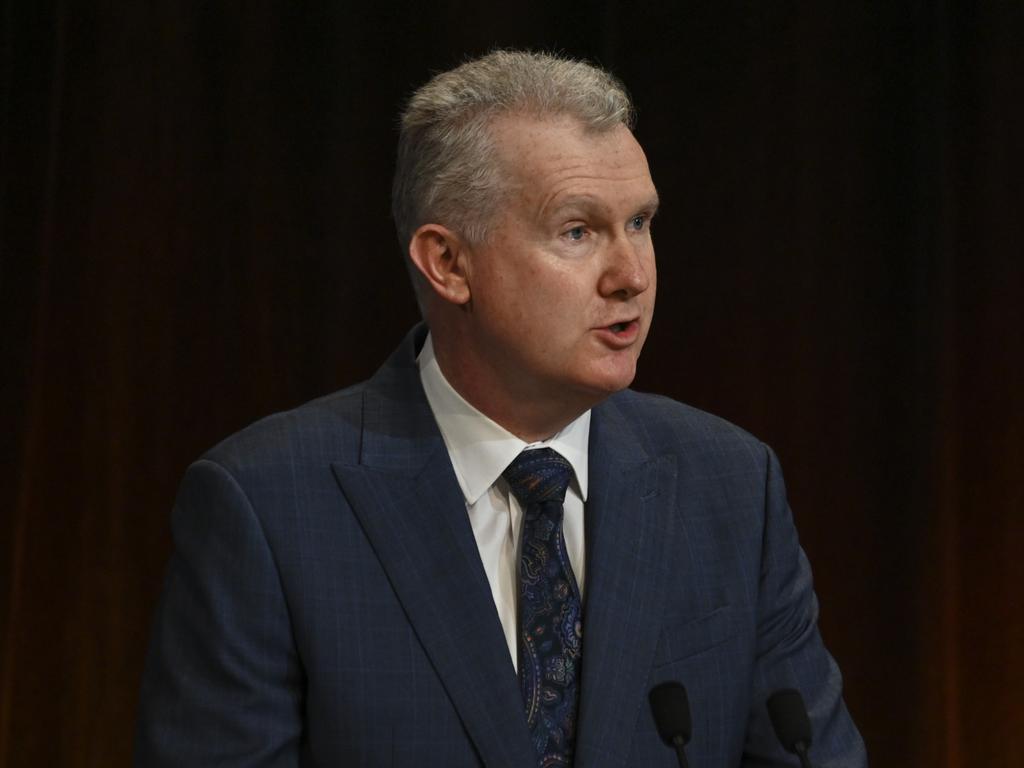
Getting wages going. On the face of it, this might seem like a reasonable objective for the newly elected Labor government. But its very simplicity gives the game away: it’s not possible to dictate higher wages, let alone wage rises that don’t damage employment and potentially stoke inflation. Real wage gains occur only when productivity is rising.
By introducing complex and probably unworkable industrial relations regulations, the stage is set for bitter disappointment, although a handful of unionised workers in protected industries may benefit in the short term.
The current voluntary nature of bargaining, which occurs on top of our comprehensive award system, irritates the leaders of the trade unions. And the fact many employers, particularly in retail and fast food, have turned their backs on making new enterprise agreements infuriates them. Allowing employers to seek the cancellation of agreements is, for them, the last straw.
The strongly held view is that the Labor government must implement new laws that basically make bargaining compulsory, including the option of multi-employer bargaining and greater recourse to strike action. Combined with a potential end-point of easily accessible arbitration by the Fair Work Commission, the aim is to prevent employers from refusing to agree to outcomes the unions see as acceptable.
Agreements provide benefits to the unions that are not available in awards. There are clauses that facilitate workers becoming union members and that insist on consultation with the unions in the event of changes to workplace arrangements. There are often limits placed on the use of contractors and labour hire workers, and income protection insurance companies and industry super funds with links to the unions are often nominated as sole providers. It’s an illustration of the adage – follow the money.
The objective of achieving better pay for workers is just one of a number as far as the unions are concerned. The new provision that will require a union official to formally consent before an agreement is presented to workers, whether or not they are union members, underpins one core purpose of the legislative amendments – to recruit new members in settings that have proven difficult for the unions to achieve much (or any) penetration.
It’s why multi-employer bargaining is now seen as so important, because the union leaders realise that single-enterprise bargaining is a hard slog. They don’t have the resources to make quick headway. This said, forcing large employers into single-enterprise bargaining because the alternative looks worse is one reason Labor is pursuing multi-employer bargaining. Given the bizarre changes to the better-off-overall test, it’s easy to understand the hostile reception the legislative package is receiving from the business community.
The legislative provisions that will govern multi-employer bargaining are vague, particularly in relation to what constitutes a single interest. As a result, it will effectively be up to the unions to decide what multi-employer bargaining options they pursue.
There may be cases where there is an attempt to rope in large competitors in the same industry. But another possibility is for unions to follow the supply chains of large companies and to rope in those companies which provide goods and services to the large company at the end of the chain. Needless to say, protected industrial action across supply chains doesn’t bear thinking about.
An example would be Qantas and its service providers. With outsourcing strongly opposed by the unions, a multi-employer agreement could potentially cover Qantas and all the companies it deals with, undercutting any benefits Qantas can secure from contracting out services. It could also be a useful device for the unions to recruit members as union membership could be made a de facto condition for the unions’ authorisation to have the agreement put to workers.
It’s also one of the reasons the government has shown a reluctance to give ground on the definition of small business that will be exempt from the new amendments. A cut-off point of 15 workers – not 15 full-time equivalent workers – will mean that small firms will potentially be affected. Normally, unions find it very hard to recruit members in this sector, but the force of the new laws will noticeably assist them to do so.
One can also envisage a situation where the larger companies also prefer to keep smaller businesses in the tent. Take a situation where a multi-employer agreement is proposed that covers competing firms within an industry. Large operators won’t want to be singled out to pay higher pay and conditions to their workers while their smaller competitors are not included in the deal.
The way to understand Labor’s out-of-the blue legislative amendments is as payback to the unions for the support they give to the Labor Party. While multi-employer bargaining was not mentioned prior to the election – indeed, Treasurer Jim Chalmers explicitly ruled it out – the union leaders have now decided that this is the preferred route to achieving greater influence, membership and money It is why Tony Burke has been prepared to switch course and push so strongly for its inclusion. The rushed process – there have already been 150 amendments to the 300-page odd bill – could easily have embarrassed another minister. But when you are on a mission, speed is of the essence.
Neither Burke nor the Prime Minister seems to understand the economic perils that will be released should the bill become law. They remain convinced the apparent decline in the labour share of GDP indicates workers are being underpaid. But analysis of the labour share indicates that recent movements have been dominated by the booming mining sector, where wages are already very high, and to a lesser extent, financial services, where wages are also high. Take out these two sectors and it turns out the labour share hasn’t moved much at all. There are also indications that wages are already moving in a very tight labour market.
There are good ways to amend laws, and bad ways as well. What we have witnessed over the past several weeks falls squarely into the latter category. Inadequate consultation, rushed drafting, insufficient time for parliamentary assessment – the longer-term consequences of these failings are potentially substantial. If the Labor government wants to demonstrate its competence and professionalism, it is going about it in a very strange way.







